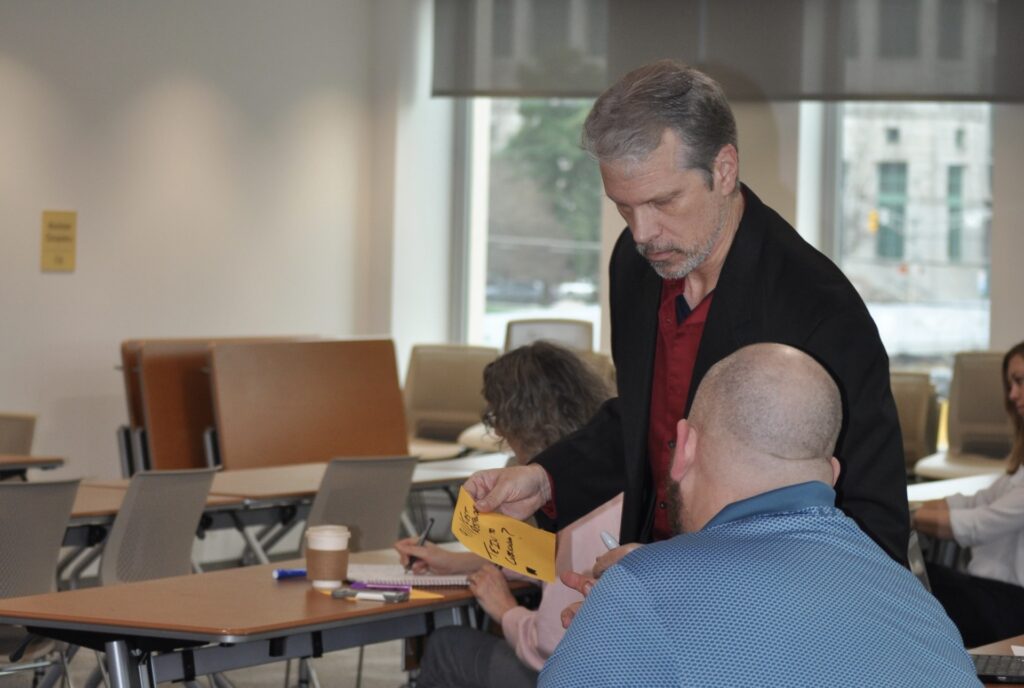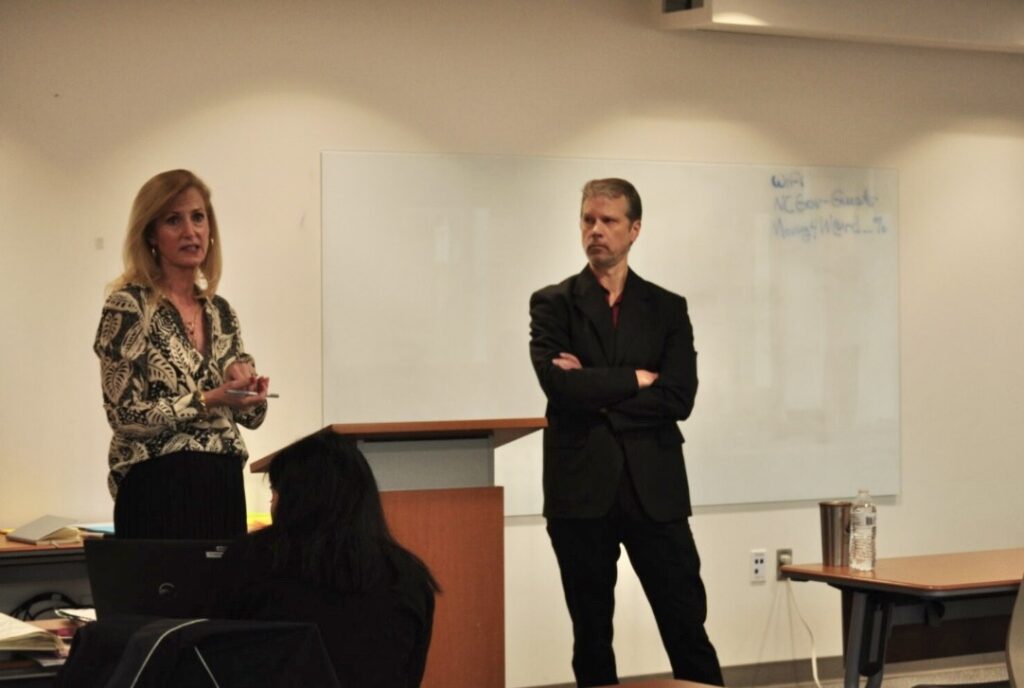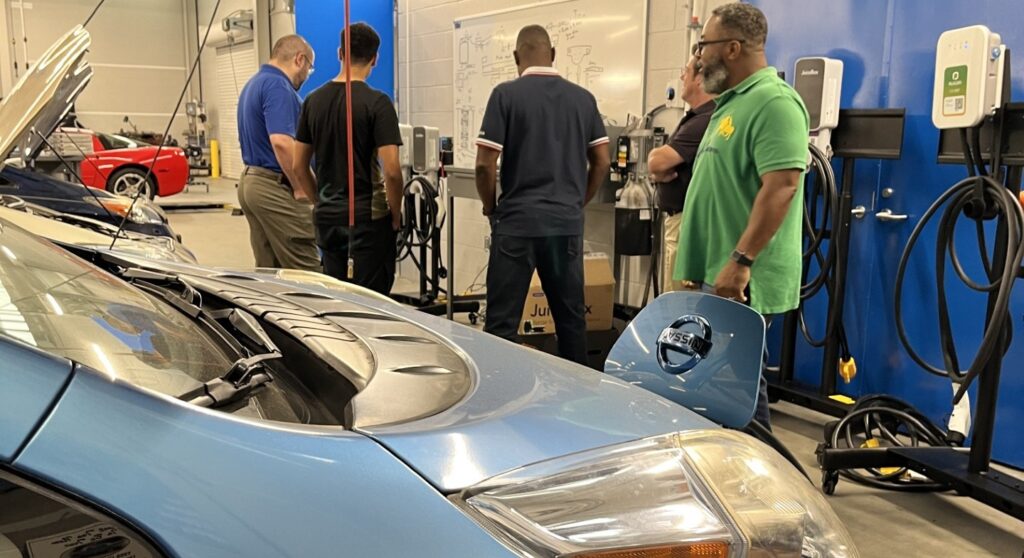NC Non-Profit and Hands-on National Program Prepare Students for an EV Future
All across America, educators are realizing the need for EV education and are making bold steps to quickly integrate electric vehicles into their curriculums. One example is the North Carolina Business Committee for Education (NCBCE), which is preparing students in North Carolina for an electric transportation future.
Additionally, an exciting hands-on national program is offered by Switch Vehicles. The program, known as The SWITCH Lab, is utilized in over 350 schools worldwide and is designed to enhance STEM (Science, Technology, Engineering, and Mathematics) and CTE (Career and Technical Education) programs. Students participating in The SWITCH Lab work together to build a full-size, road-worthy electric vehicle (EV) in the classroom.
NCBCE’s EV Charging Station Infrastructure Initiative
NCBCE is a nonpartisan nonprofit, which is seeking to ensure students in North Carolina graduate from high school and community college ready for life, and work, in a variety of fields.
Matthew Meyer, Ph.D. serves as a Consultant for the North Carolina Business Committee for Education (NCBCE), specifically focusing on the organization’s EV Charging Station Infrastructure Initiative. In addition to this role, Meyer is the lead consultant on EVeryone Charging Forward, an EV workforce development project in North Carolina, which is a significant initiative funded by the Siemens Foundation.
Caroline Sullivan, Executive Director, NCBCE, Office of the Governor, said: “The North Carolina Business Committee for Education (NCBCE) is proud to be an inaugural partner in the Siemens Foundation’s EVeryone Charging Forward initiative; created in response to the rapid growth of the EV charging sector and demand for skilled workers across the industry. NCBCE is partnering with industry, educational systems, and workforce partners to develop curriculum, career pathways and registered apprenticeship programs providing opportunity for North Carolina residents and a trained talent pipeline for employers. The grant also funds wrap-around services to students with barriers to support them with training. The best practices and strategies will be shared broadly through the foundation’s initiative.”
This workforce development project started by gathering representatives and stakeholders from the electric vehicle (EV) industry to directly understand their specific workforce needs. To facilitate these discussions effectively, Meyer was trained in the Next Generation Sector Partnership model, a collaborative approach designed to align industry needs with workforce development strategies. His expertise and leadership in these projects are crucial in advancing North Carolina’s efforts to build a robust EV infrastructure and prepare a skilled workforce to meet the growing demands of the EV sector.

EVinfo.net spoke with Meyer about the commendable and important project.
Meyer said: “This project is a great example of a strong public-private partnership. We gathered industry representatives from the EV supply equipment manufacturers, EV charging station installation and maintenance companies, public utility companies, and other industry stakeholders to provide a room of training providers and state agency representatives input on their needs to grow the industry. The public partners were in listen-mode only and the results of the first industry sector partnership meeting was the development of an EV Supply Equipment course aligned to the Society of Automotive Engineers EVSE Body of Knowledge for our community colleges to offer.”
EV Supply Equipment (EVSE) Training Course
After conducting meetings with key stakeholders, the NCBCE team, in partnership with Wake Technical Community College, was prepared to pilot the EV Supply Equipment (EVSE) training course. This course, which was developed with significant industry input and aligned with the Society of Automotive Engineers’ EVSE body of knowledge, was initially tested with a group of students. Nine out of ten students completed the pilot course, providing valuable feedback that allowed the team to make necessary adjustments.
Following these refinements, the course has now been made available to all of North Carolina’s 58 community colleges, with fifteen colleges indicating plans to offer it in late fall. This initiative is a critical step in building the state’s EV workforce, equipping students with the specialized skills needed to support the growing demand for EV charging infrastructure.

Matthew Meyer’s team is currently focused on further developing the EV Supply Equipment (EVSE) course by creating comprehensive instructor and student handbooks. These resources are designed to ensure consistent and effective instruction across the participating community colleges.
Building on the success of the EVSE initiative, the team is now applying the same collaborative model to engage with battery manufacturers in North Carolina. This approach aims to tailor workforce development programs to meet the specific needs of the battery manufacturing sector, further strengthening the state’s clean energy infrastructure.
An additional outcome from their ongoing work was the recognition of a need for a Clean Energy Fundamentals course. This course is intended to provide foundational knowledge for individuals who may not have the electrical background necessary to take the more specialized EVSE or battery manufacturing courses. This foundational course will help broaden the pool of potential candidates for these technical programs.
The team is collaborating with the Urban League to develop apprenticeship programs specifically for EVSE technicians. These apprenticeships will offer hands-on training and career pathways in the rapidly growing field of electric vehicle infrastructure, aligning with broader workforce development goals in the clean energy sector.

The North Carolina Business Committee for Education (NCBCE)
The North Carolina Business Committee for Education (NCBCE) is a business-led, non-profit organization that has been fostering connections between the business community and educational institutions in North Carolina since 1983. Operating under the Office of the Governor, NCBCE plays a pivotal role in aligning educational curricula with the workforce readiness needs of the state’s citizens.
As a 501(c)(3) non-profit with a non-partisan structure, NCBCE offers a unique platform for its members—comprising senior business leaders across North Carolina—to engage in and influence educational initiatives. These leaders, through NCBCE’s independent board of directors, provide valuable insights and recommendations to education decision-makers, driving public education transformation to better prepare students for the workforce.
NCBCE collaborates with statewide education departments and organizations to implement experiential learning projects that bridge the gap between classroom learning and real-world business needs. With over 32 years of experience across six gubernatorial administrations, NCBCE has established itself as a trusted advisor and the collective business voice advocating for educational practices that address the workforce skills gap and meet the demands of North Carolina’s economy.
Switch Vehicles’ EV Education Program is Used in Over 350 Schools Around the World
The comprehensive, reusable kits provided by Switch Vehicles include all the necessary components to assemble a roadworthy EV, such as the chassis, a DC or Permanent Magnet drive system, batteries, wiring, lights, seats, seat belts, windscreen, and more. These all-in-one solutions ensure that students gain hands-on experience with real-world technology, preparing them for future careers in the rapidly growing field of electric vehicles. By challenging students to build a functional EV, Switch Vehicles is empowering the next generation of leaders and innovators in the field of sustainable transportation.
“The Switch Lab EV program empowers students to diagnose and troubleshoot EV systems in a safe environment. By having students get hands-on experience with high voltage systems, they are more prepared for real world applications. This includes collision repair shops that have to disconnect, repair or recycle traction batteries from OEM vehicles. These skills will become increasingly important as the world shifts to electric vehicle transportation methods,” said Brandon Watt, Community and Marketing Manager at Switch Vehicles.

Electric Vehicle Marketing Consultant, Writer and Editor. Publisher EVinfo.net.
Services